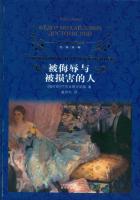What was feudalism? A confederation of the grand seign iors against the villeins, and against the king.What is constitutional government? A confederation of the bourgeoisie against the laborers, and against the king.
Feudalism was, in spirit and in its providential destiny, a long protest of the human personality against the monkish communism with which Europe, in the middle ages, was overrun.
After the orgies of Pagan selfishness, society--carried to the opposite extreme by the Christian religion--risked its life by unlimited self-denial and absolute indifference to the pleasures of the world.Feudalism was the balance-weight which saved Europe from the combined influence of the religious communities and the Manlchean sects which had sprung up since the fourth century under different names and in different countries.Modern civilization is indebted to feudalism for the definitive establishment of the person, of marriage, of the family, and of country.(See, on this subject, Guizot, "History of Civilization in Europe.") This was made evident in July, 1830, and the years which followed it, when the electoral bourgeoisie effected a revolution in order to get control over the king, and suppressed the emeutes in order to restrain the people.The bourgeoisie, through the jury, the magistracy, its position in the army, and its municipal despotism, governs both royalty and the people.It is the bourgeoisie which, more than any other class, is conservative and retrogressive.It is the bourgeoisie which makes and unmakes ministries.It is the bourgeoisie which has destroyed the influence of the Upper Chamber, and which will dethrone the King whenever he shall become unsatisfactory to it.
It is to please the bourgeoisie that royalty makes itself unpopular.It is the bourgeoisie which is troubled at the hopes of the people, and which hinders reform.The journals of the bourgeoisie are the ones which preach morality and religion to us, while reserving scepticism and indifference for themselves;which attack personal government, and favor the denial of the electoral privilege to those who have no property.The bourgeoisie will accept any thing rather than the emancipation of the proletariat.As soon as it thinks its privileges threatened, it will unite with royalty; and who does not know that at this very moment these two antagonists have suspended their quarrels?...It has been a question of property.
How did feudalism end? In the union of the communes and the royal authority.How will the bourgeoisie aristocracy end? In the union of the proletariat and the sovereign power.
What was the immediate result of the struggle of the communes and the king against the seigniors? The monarchical unity of Louis XIV.What will be the result of the struggle of the proletariat and the sovereign power combined against the bourgeoisie? The absolute unity of the nation and the government.
It remains to be seen whether the nation, one and supreme, will be represented in its executive and central power by ONE, by FIVE, by ONE HUNDRED, or ONE THOUSAND; that is, it remains to be seen, whether the royalty of the barricades intends to maintain itself by the people, or without the people, and whether Louis Philippe wishes his reign to be the most famous in all history.
I have made this statement as brief, but at the same time as accurate as I could, neglecting facts and details, that Imight give the more attention to the economical relations of society.For the study of history is like the study of the human organism; just as the latter has its system, its organs, and its functions, which can be treated separately, so the former has its ensemble, its instruments, and its causes.Of course I do not pretend that the principle of property is a complete resume of all the social forces; but, as in that wonderful machine which we call our body, the harmony of the whole allows us to draw a general conclusion from the consideration of a single function or organ, so, in discussing historical causes, I have been able to reason with absolute accuracy from a single order of facts, certain as I was of the perfect correlation which exists between this special order and universal history.As is the property of a nation, so is its family, its marriage, its religion, its civil and military organization, and its legislative and judicial institutions.History, viewed from this standpoint, is a grand and sublime psychological study.
Well, sir, in writing against property, have I done more than quote the language of history? I have said to modern society,--the daughter and heiress of all preceding societies,--_Age guod agis:_ complete the task which for six thousand years you have been executing under the inspiration and by the command of God;hasten to finish your journey; turn neither to the right nor the left, but follow the road which lies before you.You seek reason, law, unity, and discipline; but hereafter you can find them only by stripping off the veils of your infancy, and ceasing to follow instinct as a guide.Awaken your sleeping conscience;open your eyes to the pure light of reflection and science;behold the phantom which troubled your dreams, and so long kept you in a state of unutterable anguish.Know thyself, Olong-deluded society know thy enemy!...And I have denounced property.
We often hear the defenders of the right of domain quote in defence of their views the testimony of nations and ages.We can judge, from what has just been said, how far this historical argument conforms to the real facts and the conclusions of science.
To complete this apology, I must examine the various theories.
Neither politics, nor legislation, nor history, can be explained and understood, without a positive theory which defines their elements, and discovers their laws; in short, without a philosophy.Now, the two principal schools, which to this day divide the attention of the world, do not satisfy this condition.















